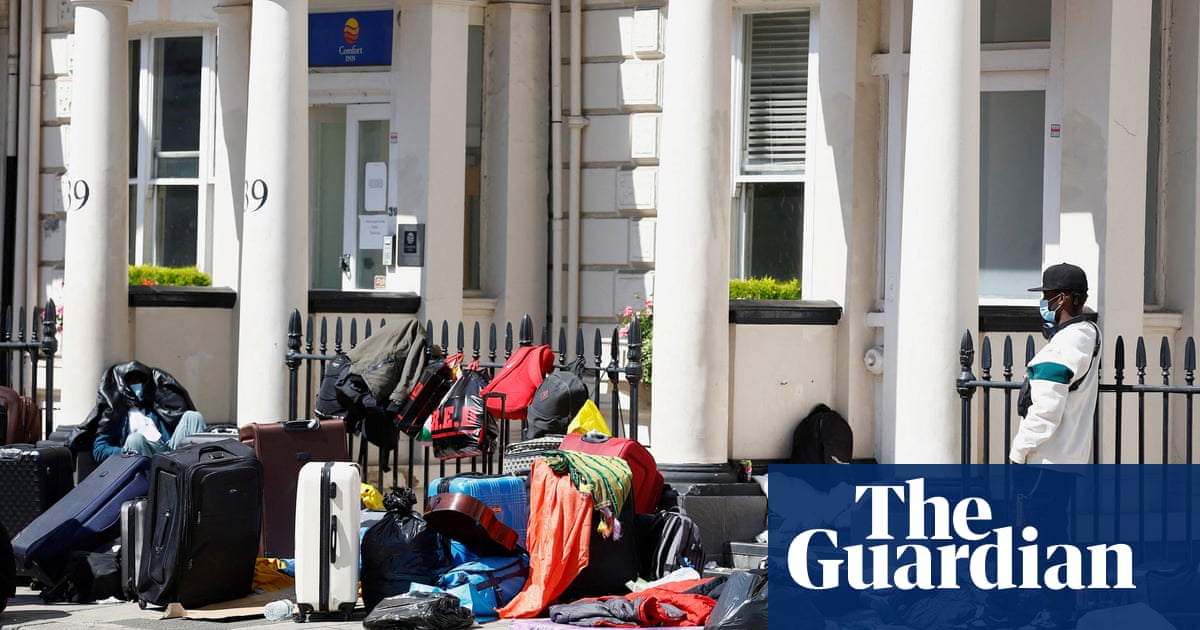
Forty-seven of the roughly 200 homeless people put up in Manchester hotels to protect them during the coronavirus outbreak have been asked to leave or have voluntarily left.
Manchester city council said some had been involved in incidents involving drug use, violence or antisocial behaviour. Others are believed to have abandoned their rooms after finding it difficult to adapt to life off the streets and adhering to ground rules such as physical distancing and not smoking in rooms.
The council said 33 residents at the Holiday Inn Express in Gorton and 14 residents at the Rams Lodge in Fallowfield had either been asked to leave or had voluntarily left.
Their whereabouts now are unknown as the council only records where those in temporary housing are staying.
Richard Leese, the council’s leader, said: “At the best of times it is extremely challenging to support people dealing with issues such as poor mental health, addiction or other complex needs, not taking into account the extreme situation we are faced with.
“Our staff are working very hard to manage what is a very difficult situation, but we are also reliant on our residents behaving responsibly and sticking to social distancing guidelines, not just for their own benefit but for those around them.”
The council’s efforts are part of a £5m scheme set up by Greater Manchester Combined Authority (GMCA), which covers 10 local authorities within the region, to house rough sleepers and people who had been living in shared accommodation during the outbreak.
GMCA says it exceeded its target by giving 1,140 people a place to self-isolate.
There have been other difficulties in implementing the programme. In March the Greater Manchester mayor, Andy Burnham, said he was “extremely disappointed” after Britannia Hotels evicted the homeless people it had agreed to accommodate.
Some of those who have been asked to adhere to physical distancing policies while in temporary accommodation have faced practical issues. Isam Rahman, 28, who had been given a room at Alexander House, a hostel in Eccles, Salford, said he had been evicted for going to a friend’s house to wash his clothes, when there was no working washing machine at the hostel.
Rahman became homeless in March after losing his part-time job at a barber’s in the city centre when it closed under the lockdown. Although he now receives £300 a month in universal credit, Rahman said it was not enough.
“They told me you have to take your clothes outside and you have to pay for it. But I didn’t have the money so that’s why I called my friend. If I had money I would have taken them to the laundrette,” he said.
When he returned in the morning, he was told by staff at the hostel to leave, and he was not offered alternative accommodation by the council.
A spokesperson for Salford city council said they could not comment on individual cases but emphasised that the hostel was privately run and there were washing machines on the premises.
Others have defended the authorities’ efforts. Amanda Croome, the chief executive of the Booth Centre, a day centre that offers support to homeless people in Manchester, said she had been in contact with some of those who had left the hotels and at least some had been provided with alternative accommodation.
She said support workers were working 24 hours a day in the hotels that had agreed to provide rooms for homeless people.












